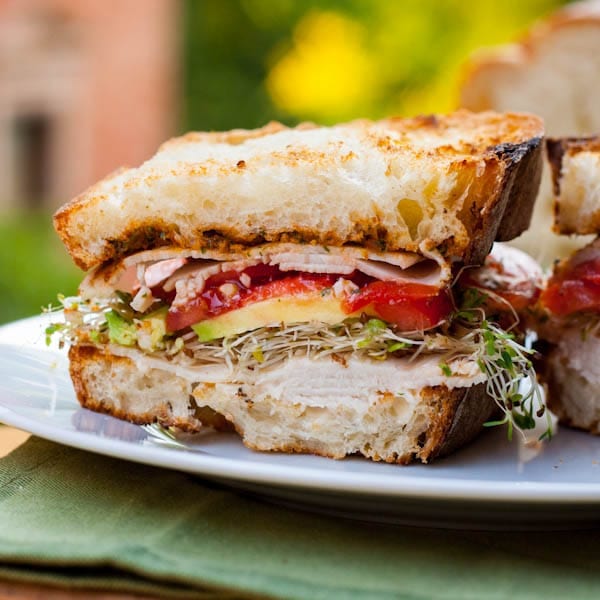Alfalfa sprouts
Alfalfa (Medicago sativa), also called lucerne, is a perennial flowering plant in the legume family Fabaceae. It is cultivated as an important forage crop in many countries around the world. It is used for grazing, hay, and silage, as well as a green manure and cover crop. The name alfalfa is used in North America. The name lucerne is more commonly used in the United Kingdom, South Africa, Australia, and New Zealand. The plant superficially resembles clover (a cousin in the same family), especially while young, when trifoliate leaves comprising round leaflets predominate. Later in maturity, leaflets are elongated. It has clusters of small purple flowers followed by fruits spiralled in two to three turns containing 10–20 seeds. Alfalfa is native to warmer temperate climates. It has been cultivated as livestock fodder since at least the era of the ancient Greeks and Romans. Alfalfa is a perennial forage legume which normally lives four to eight years, but can live more than 20 years, depending on variety and climate. The plant grows to a height of up to 1 metre (3+1⁄2 feet), and has a deep root system, sometimes growing to a depth of more than 15 m (49 ft) to reach groundwater. Typically the root system grows to a depth of 2–3 m (7–10 ft) depending on subsoil constraints.
Source: Wikipedia
:max_bytes(150000):strip_icc()/200107-r-xl-sprouts-with-apples-and-nasturtium-leaves-2000-419a510f0fef4262bfdcc63dbae064cd.jpg)


:max_bytes(150000):strip_icc()/2574910-5a6e45eec83d4eb283e3ac29001eb01a.jpg)

